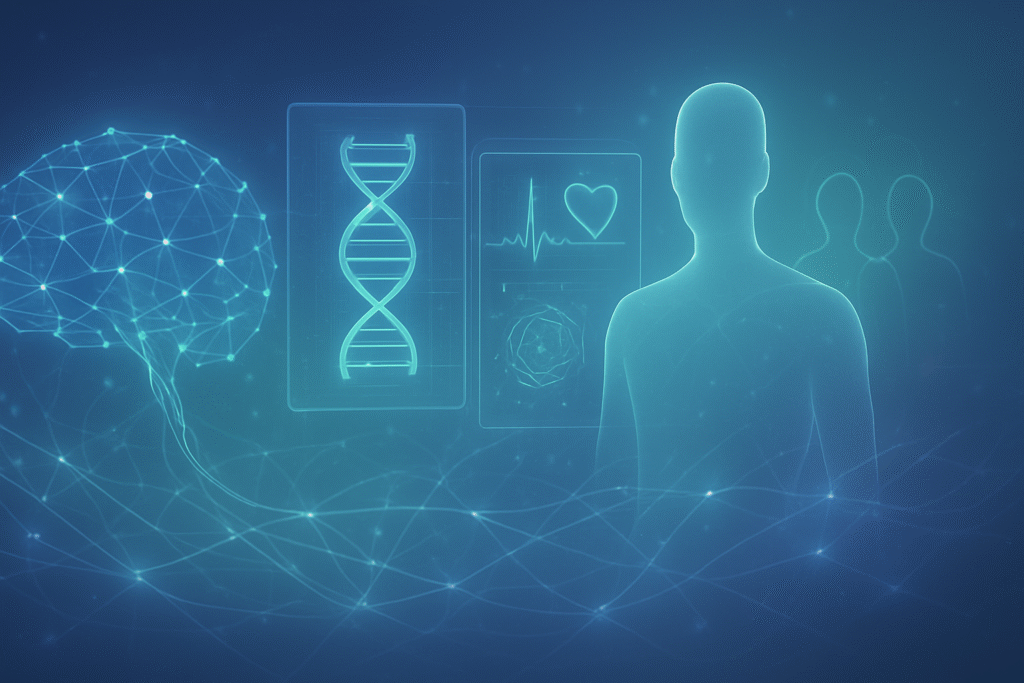
Washington D.C. – The healthcare landscape is on the cusp of a profound transformation, driven by the relentless march of artificial intelligence. This imminent revolution will take center stage at the Universal 'AI for Health' Summit, a pivotal upcoming event scheduled for October 29, 2025, with pre-summit activities on October 28 and a virtual workshop series from November 3-7, 2025. Co-hosted by MedStar Health and Georgetown University in collaboration with DAIMLAS, this summit is poised to convene a global consortium of educators, clinicians, researchers, technologists, and policy leaders at the Georgetown University Medical Center in Washington, D.C., and virtually worldwide. Its immediate significance lies in its forward-looking vision to bridge institutional strategy, applied research, and practical workforce development, ensuring that AI's integration into healthcare is both innovative and responsibly managed.
The summit's primary objective is to delve into the intricate intersection of AI with health research, education, and innovation. Participants are expected to gain invaluable tools and insights necessary to lead and implement AI solutions that will fundamentally reshape the future of patient care and medical practices. By emphasizing practical application, ethical deployment, and cross-sector collaboration, the Universal 'AI for Health' Summit aims to harness AI as a powerful force for enhancing sustainable and smarter healthcare systems globally, aligning with the World Health Organization's (WHO) vision for AI to foster innovation, equity, and ethical integrity in health, thereby contributing significantly to the Sustainable Development Goals.
Pioneering AI Integration: Technical Deep Dives and Emerging Paradigms
The Universal 'AI for Health' Summit's agenda is meticulously crafted to explore the technical underpinnings and practical applications of AI that are set to redefine healthcare. Key discussions will revolve around the specifics of AI advancements, including the deployment of AI in community health initiatives, the burgeoning role of conversational AI and chatbots in patient engagement and support, and sophisticated predictive modeling for disease trajectory analysis. Experts will delve into how AI-driven insights can personalize treatment plans, optimize resource allocation, and even forecast public health crises with unprecedented accuracy.
Technically, the summit will address the nuances of institutional AI readiness and the development of robust governance frameworks essential for scalable and secure AI adoption. A significant focus will be placed on transparent and responsible AI deployment, grappling with challenges such as algorithmic bias, data privacy, and the need for explainable AI models. The discussion will also extend to the innovative use of multimodal data—integrating diverse data types like imaging, genomics, and electronic health records—and the potential of synthetic data in real-world settings to accelerate research and development while safeguarding patient anonymity. This approach significantly differs from previous, more siloed AI applications, moving towards integrated, ethical, and holistic AI solutions. Initial reactions from the AI research community and industry experts highlight the critical need for such a comprehensive platform, praising its focus on both cutting-edge technology and the vital ethical and governance considerations often overlooked in rapid innovation cycles.
Reshaping the Competitive Landscape: Implications for Tech Giants and Startups
The Universal 'AI for Health' Summit is poised to significantly impact the competitive landscape for AI companies, established tech giants, and burgeoning startups alike. Companies specializing in AI-driven diagnostics, personalized medicine platforms, and operational efficiency tools stand to benefit immensely from the increased visibility and collaborative opportunities fostered at the summit. Major AI labs and tech companies like Alphabet (NASDAQ: GOOGL), Microsoft (NASDAQ: MSFT), and IBM (NYSE: IBM), already heavily invested in healthcare AI, will likely leverage the summit to showcase their latest advancements, forge new partnerships, and influence the direction of regulatory and ethical guidelines. Their strategic advantage lies in their vast resources, existing cloud infrastructure, and extensive research capabilities, enabling them to develop and deploy complex AI solutions at scale.
For startups, the summit offers an unparalleled platform for exposure, networking with potential investors, and identifying unmet needs in the healthcare sector. Innovators focusing on niche AI applications, such as specialized medical imaging analysis, AI-powered drug discovery, or mental health support chatbots, could find their breakthrough moments here. The discussions on institutional readiness and governance frameworks will also guide startups in building compliant and trustworthy AI products, crucial for market adoption. This collective push towards responsible AI integration could disrupt existing products and services that lack robust ethical considerations or are not designed for seamless cross-sector collaboration. The summit's emphasis on practical implementation will further solidify market positioning for companies that can demonstrate tangible, impactful AI solutions for real-world healthcare challenges.
Broader Significance: Navigating AI's Ethical Frontier in Healthcare
The Universal 'AI for Health' Summit fits squarely into the broader AI landscape as a critical milestone in the responsible and equitable integration of artificial intelligence into society's most vital sectors. It underscores a growing global consensus that while AI holds immense promise for improving health outcomes, it also presents significant ethical, social, and regulatory challenges that demand proactive and collaborative solutions. The summit's focus on themes like transparent AI, algorithmic bias, and data privacy directly addresses the potential pitfalls that have emerged alongside previous AI advancements. By emphasizing these concerns, the event aims to prevent the exacerbation of existing health disparities and ensure that AI innovations promote universal access to quality care.
This initiative can be compared to earlier milestones in AI, such as the initial breakthroughs in machine learning for image recognition or natural language processing, but with a crucial distinction: the 'AI for Health' Summit prioritizes application within a highly regulated and sensitive domain. Unlike general AI conferences that might focus solely on technical capabilities, this summit integrates clinical, ethical, and policy perspectives, reflecting a maturing understanding of AI's societal impact. Potential concerns, such as the 'black box' problem of complex AI models or the risk of over-reliance on automated systems, will undoubtedly be central to discussions, seeking to establish best practices for human-in-the-loop AI and robust validation processes. The summit represents a concerted effort to move beyond theoretical discussions to practical, ethical, and scalable deployment of AI in health.
Future Developments: The Horizon of AI-Driven Healthcare
Looking ahead, the Universal 'AI for Health' Summit is expected to catalyze a wave of near-term and long-term developments in AI-driven healthcare. In the immediate future, we can anticipate a greater emphasis on developing standardized frameworks for AI validation and deployment, potentially leading to more streamlined regulatory pathways for innovative medical AI solutions. There will likely be an acceleration in the adoption of conversational AI for patient triage and chronic disease management, and a surge in predictive analytics tools for personalized preventive care. The virtual workshop series following the main summit is designed to foster practical skills, suggesting an immediate push for workforce upskilling in AI literacy across healthcare institutions.
On the long-term horizon, experts predict that AI will become an indispensable component of every aspect of healthcare, from drug discovery and clinical trials to surgical precision and post-operative care. Potential applications on the horizon include AI-powered digital twins for personalized treatment simulations, advanced robotic surgery guided by real-time AI insights, and AI systems capable of synthesizing vast amounts of medical literature to support evidence-based medicine. However, significant challenges remain, including the need for robust data governance, interoperability across disparate health systems, and continuous ethical oversight to prevent bias and ensure equitable access. Experts predict a future where AI acts as an intelligent co-pilot for clinicians, augmenting human capabilities rather than replacing them, ultimately leading to more efficient, equitable, and effective healthcare for all.
A New Era for Health: Summit's Enduring Legacy
The Universal 'AI for Health' Summit marks a pivotal moment in the history of artificial intelligence and healthcare. Its comprehensive agenda, encompassing leadership, innovation, and cross-sector collaboration, underscores a collective commitment to harnessing AI's transformative power responsibly. The key takeaways from this summit will undoubtedly revolve around the critical balance between technological advancement and ethical stewardship, emphasizing the need for robust governance, transparent AI models, and a human-centric approach to deployment.
This development signifies a maturing phase in AI's journey, where the focus shifts from mere capability demonstration to practical, ethical, and scalable integration into complex societal systems. The summit's long-term impact is expected to be profound, shaping policy, influencing investment, and guiding the development of the next generation of healthcare AI solutions. As the industry moves forward, stakeholders will be watching closely for the emergence of new collaborative initiatives, the establishment of clearer regulatory guidelines, and the tangible improvements in patient outcomes that these discussions promise to deliver. The Universal 'AI for Health' Summit is not just a conference; it is a blueprint for the future of medicine, powered by intelligent machines and guided by human wisdom.
This content is intended for informational purposes only and represents analysis of current AI developments.
TokenRing AI delivers enterprise-grade solutions for multi-agent AI workflow orchestration, AI-powered development tools, and seamless remote collaboration platforms.
For more information, visit https://www.tokenring.ai/.




